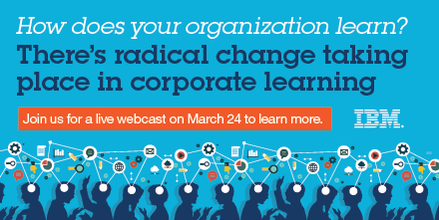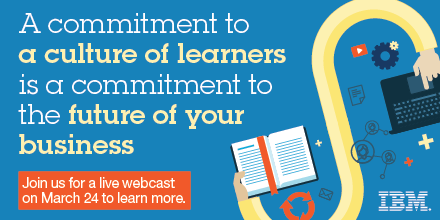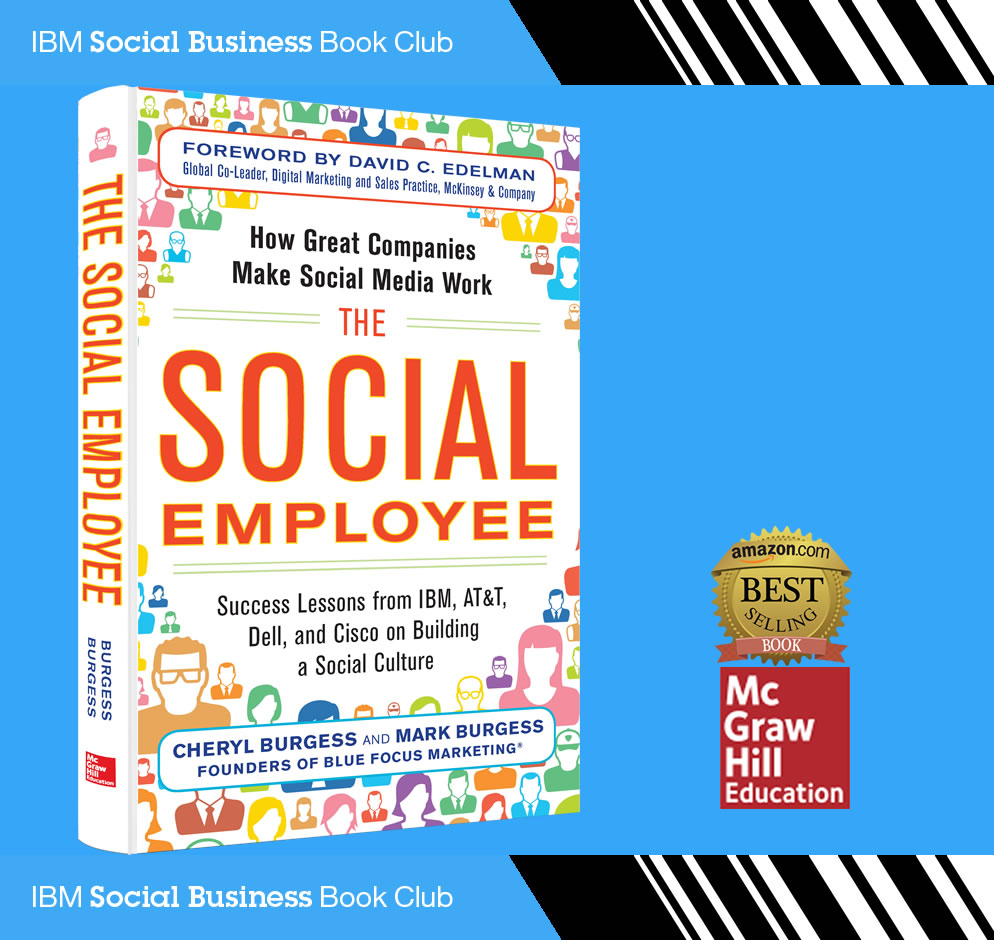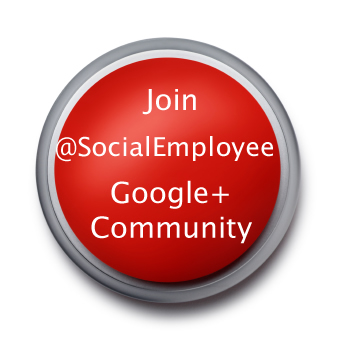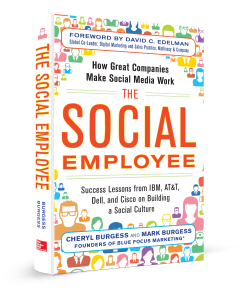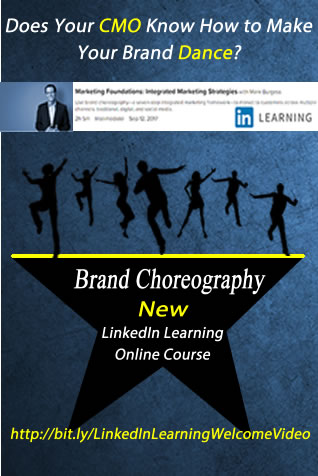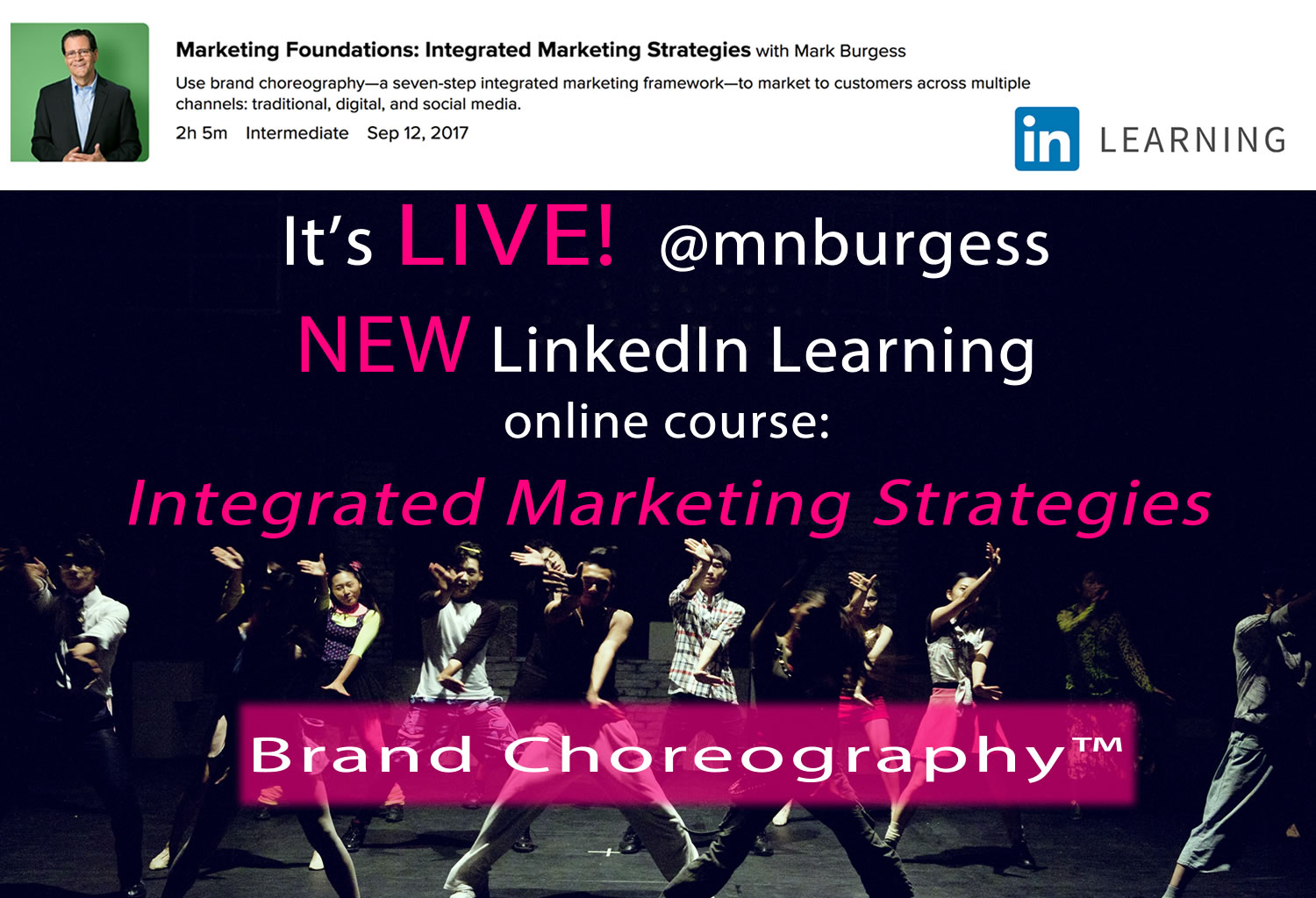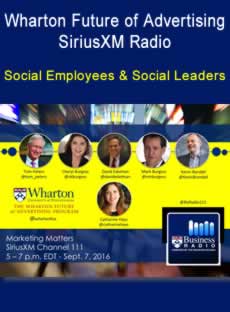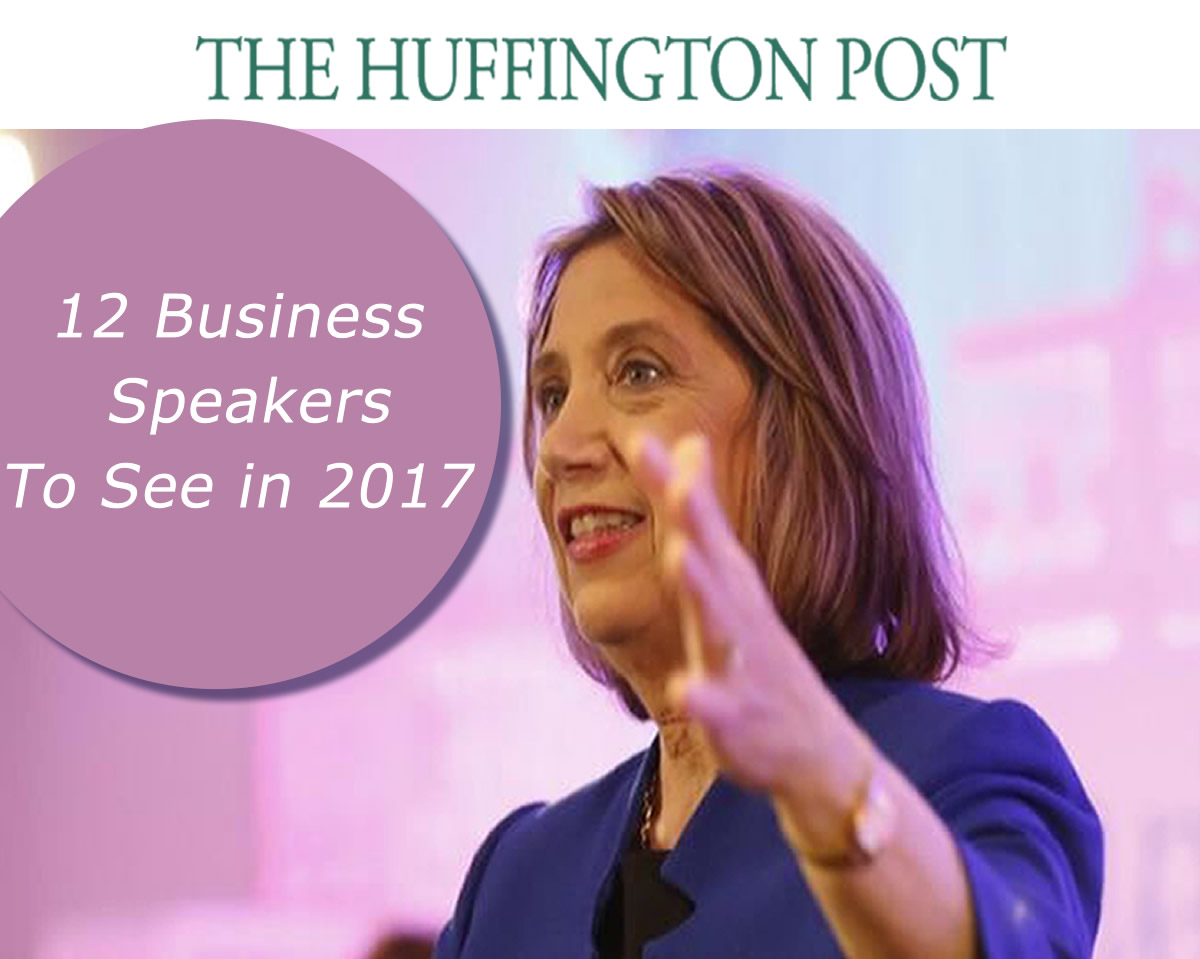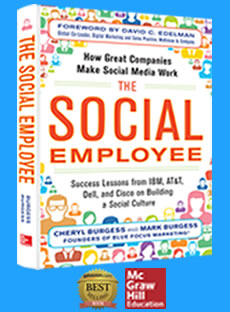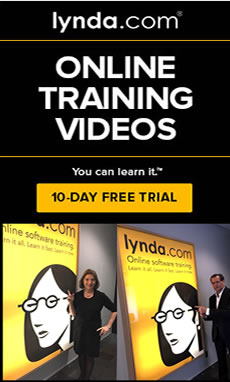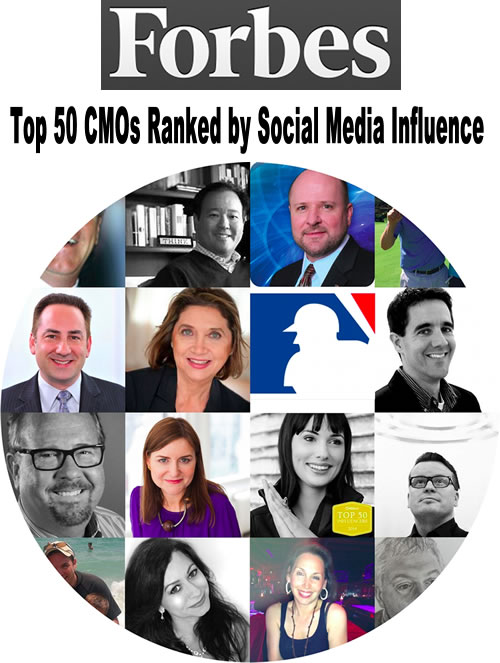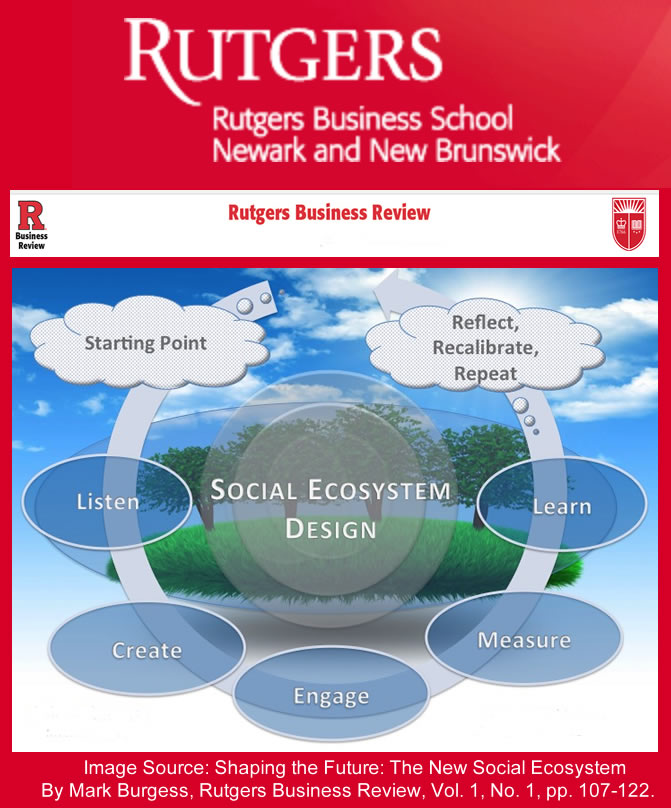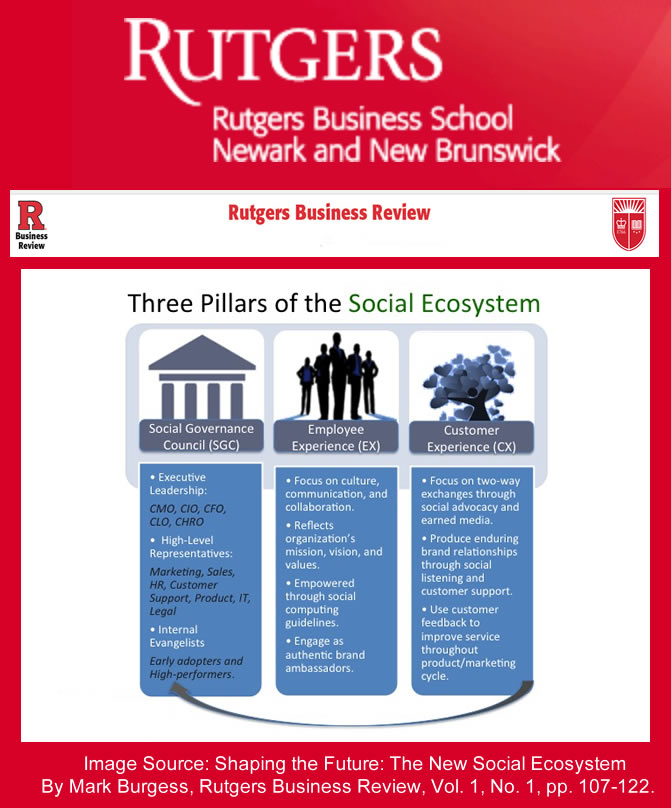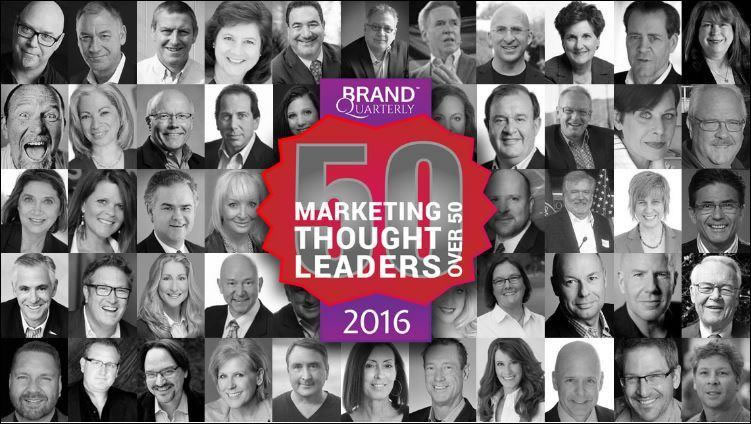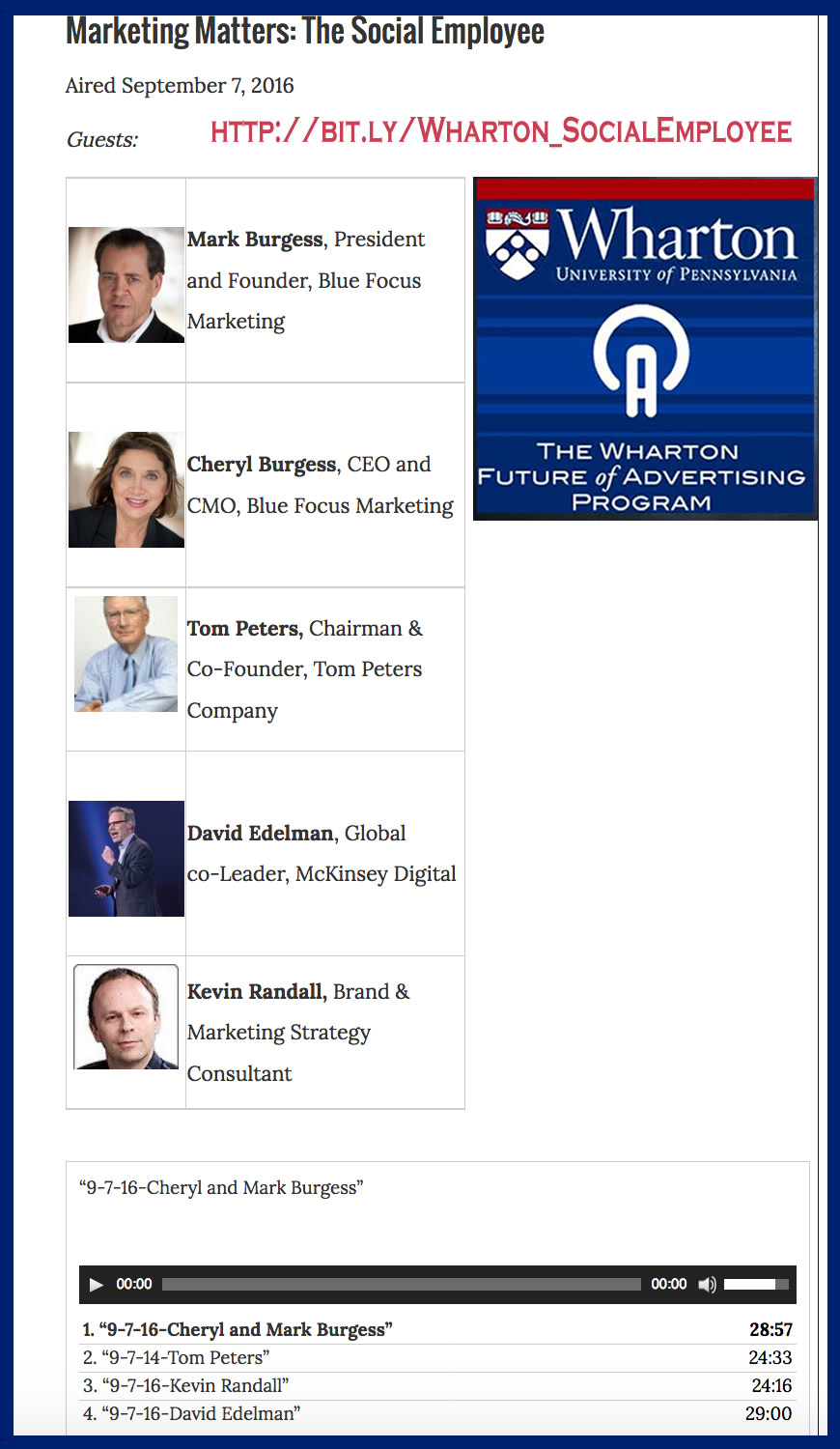We are excited to be participating in the upcoming IBM webinar, “Changing the Learning Culture,” where Blue Focus Marketing cofounder Cheryl Burgess and I will join Scott Edwards, IBM Product Manager, Smarter Workforce, for a discussion of social employees—focusing on the best training models and strategies for establishing an engaged, sustainable culture.
The concept of social learning is quickly establishing itself as a foundational concept in workforce training. As tremendous resources are being invested on social employee infrastructure, communication, and education, the education system has also taken notice—reimagining its course offerings to prepare the next generation of workers for a business world transforming itself around social practices.
What does this new business world look like? In his “Predictions for 2015” report, Josh Bersin (@Josh_Bersin) described the key difference in how today’s businesses view the workforce: “Economists believe that today skills and talent, not experience or tenure, drive earnings power and financial success” (p. 26). This is not to say that experience doesn’t matter, just that seniority alone is not enough. Bersin elaborated on this point:
“Companies should take a ‘supply chain’ view of skills, realizing that it often takes many years for employees to build deep skills within their roles or organizations; career development programs, job rotations, competency-based assessments, and simulations are increasingly important.” (p. 28)
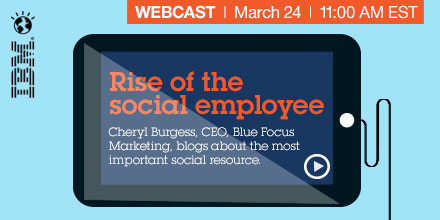 These ideas fascinated me. On the one hand, it is clear that young graduates looking to kick-start their careers must be prepared to demonstrate a broad set of talents just to get their feet in the door. But on the other hand, for employees to succeed, their ability to learn and think critically—and therefore develop the proper cognitive processes for skills acquisition—must be developed and supported at the university level. It’s no longer just about what you know; it’s what you’re capable of knowing.
These ideas fascinated me. On the one hand, it is clear that young graduates looking to kick-start their careers must be prepared to demonstrate a broad set of talents just to get their feet in the door. But on the other hand, for employees to succeed, their ability to learn and think critically—and therefore develop the proper cognitive processes for skills acquisition—must be developed and supported at the university level. It’s no longer just about what you know; it’s what you’re capable of knowing.
To get some more perspective on how educators are rising to meet this challenge, I reached out to some of my colleagues in the university system. Dr. Paul J. LeBlanc is President of Southern New Hampshire University (SNHU). In 2012, SNHU was ranked #12 on Fast Company’s “World’s 50 Most Innovative Companies” list. Here’s what he had to say about the evolving education landscape:
“Competency-based education (CBE) and micro-credentialing (giving credits and financial aid for learning that is less than a degree) will combine to change the face of higher education over the next ten years. Think of it as a new learning ecosystem in which traditional higher education becomes unbundled, students construct their learning pathways (or have someone do it for them) in highly individualized ways and those pathways draw upon various providers, forms of learning, and include a wider array of credentials all mapped to competencies.”
Knowledge specialization is tricky, as there are many paths for young workers to follow—and they will likely need to follow more than one. A generalized degree is now seen as a good starting point, but certification and micro-credentials are quickly rising to fill in knowledge gaps. Such programs not only provide specialized training, they highlight these individuals’ ability to wear different hats and build the range of foundational skills that today’s companies are looking for.
Bob Bruner is Dean, Darden School of Business, at the University of Virginia. In his position, Bob has become increasingly interested in how online learning can be used to enhance in-person interactions:
“New technology is accelerating the pace of change of higher education, and in our Web-driven environment, educators must excel at both the digital delivery of knowledge and the delivery of superior in-person learning experiences. Social connectedness and a lifetime partnership in learning between students and scholars are core to Darden’s high-engagement experience, and we draw on the power of emerging technologies to facilitate and strengthen this collaboration through virtual classes and communities. At the end of the day, online education should be animated by our top priority, which is student learning.”
Modern business means global connections—an environment in which developing both online and in-person communication and learning skills is crucial. In my work with the American Marketing Association (AMA), I have had the opportunity to see this dynamic play out first-hand. I’ve delivered a series of workshops over the past couple years for the AMA focused on content marketing, a crucial competency in modern marketing and one that led to a dedicated chapter in our best-selling book The Social Employee (McGraw-Hill, 2013).
What I found so interesting about these workshops was not only participants’ interest in developing their skills, but also how eager they were to share their experiences and learn from those of others. There we were, taking knowledge gained online and transforming it into deeper foundational concepts and interpersonal connections—and while I was certainly there to guide and facilitate learning, I too ended up learning quite a bit from the participants in each workshop.
I was also struck by how closely these conversations aligned with the 70:20:10 model of learning, championed at IBM by Scott Edwards. The model is an excellent way to conceive of employee learning by breaking it down into three essential components: self-directed (70 percent), mentoring and coaching (20 percent) and formal training (10 percent).
While we tend to think of the education system as purely the realm of formal training, many programs are pivoting to put an increased value on ongoing mentoring and coaching—which goes a long way in empowering young professionals learning to seek answers for themselves. This was the emphasis of a colleague of mine, Andrew J. Rosman, Ph.D., CPA, Dean, Silberman College of Business, Fairleigh Dickinson University, where I teach social media strategy in the MBA program:
“E-learning has been embraced by many academics as a way to reach more students, particularly in graduate programs, in a way that is more conducive to learning while balancing a career and family. However, when considered an extension of technology alone, where a traditional face-to-face class is simply delivered online without leveraging the power of online learning to transform it to be more student-centered and hands-on, then it really doesn’t live up to its full potential. At FDU, as we prepare to roll out our first completely asynchronous online graduate degrees, we will use the opportunity to put students in charge of their education to learn through simulations and other forums to perform real-world skills that will make them more successful in their careers.”
I turned to Dr. Jeremi Bauer, Academic Program Manager – Marketing, at the Malcolm Baldrige School of Business, Post University, for his views on the future of learning, and here is what Jeremi had to say:
“With technology evolving as fast as it currently is, I think you will see the world of education head toward the intersection of traditional learning and MOOCs. In other words, I think the “near” future of e-learning will be a collaborative endeavor where the students and the instructors work together to develop content that is mutually discussed in the classroom. Engagement is going to be the differentiator. Today’s students, especially those in the e-learning demographic, don’t want to be talked at; they want to be involved in their learning! And the institutions and facilitators that understand that phenomenon and push engagement are the ones who will pull away from the pack.”
It is this take-charge spirit, providing young workers with the tools to develop knowledge and skills on their own (and sometimes on the fly), that lies at the core of social learning and the 70:20:10 model. And as more and more educators begin to embrace these approaches, the brighter the future will be for the incoming workforce.
Below are recent endorsements for The Social Employee (McGraw-Hill, August 2013) by Tom Peters and David Aaker on their social networks, but if you want to see more of their endorsements click here.

In The Social Employee, we go behind the scenes with several leading brands—such as IBM, AT&T, Dell, Adobe, Southwest Airlines, Cisco, Acxiom, and Domo—pulling the lid off the inspiring social business success stories that have propelled these companies into the 21st century. These cutting-edge brands have all come to the same realization: the path to social business lies through empowering the social employee.
See what others are saying about The Social Employee and order your copy today!
Please check out @SocialEmployee media buzz! 
“Great brands have always started on the inside, but why are companies taking so long to leverage the great opportunities offered by internal social media? . . . The Social Employee lifts the lid on this potential and provides guidance for businesses everywhere.” —JEZ FRAMPTON, Global Chairman and CEO, Interbrand
 The Social Employee offers an unparalleled behind-the-scenes look at the social business success stories of some of the biggest brand names in the business world, including IBM, AT&T, Dell, Adobe, Southwest Airlines, Cisco, Acxiom, and Domo. These cutting-edge brands have all come to the same realization: the path to social business lies through empowering the social employee.
The Social Employee offers an unparalleled behind-the-scenes look at the social business success stories of some of the biggest brand names in the business world, including IBM, AT&T, Dell, Adobe, Southwest Airlines, Cisco, Acxiom, and Domo. These cutting-edge brands have all come to the same realization: the path to social business lies through empowering the social employee.
The brands that leverage their employee base in order to engage customers and prospects through social media are the ones destined to win the marketing wars. This book not only details the astronomical rise of the social employee, but also outlines the innovative methods that leading companies have employed to foster cultures of enthusiastic and engaged workers.
FOR EWORD by David C. Edelman, Global Co-Leader, Digital Marketing & Sales Practice, McKinsey & Company
EWORD by David C. Edelman, Global Co-Leader, Digital Marketing & Sales Practice, McKinsey & Company
AFTERWORD by Kevin Randall, Vice President of Brand Strategy & Research at Movéo Integrated Branding, and journalist for The New York Times, The Economist and Vanity Fair.
Download ~> Free Chapter 3 – “Brands Under Pressure”
